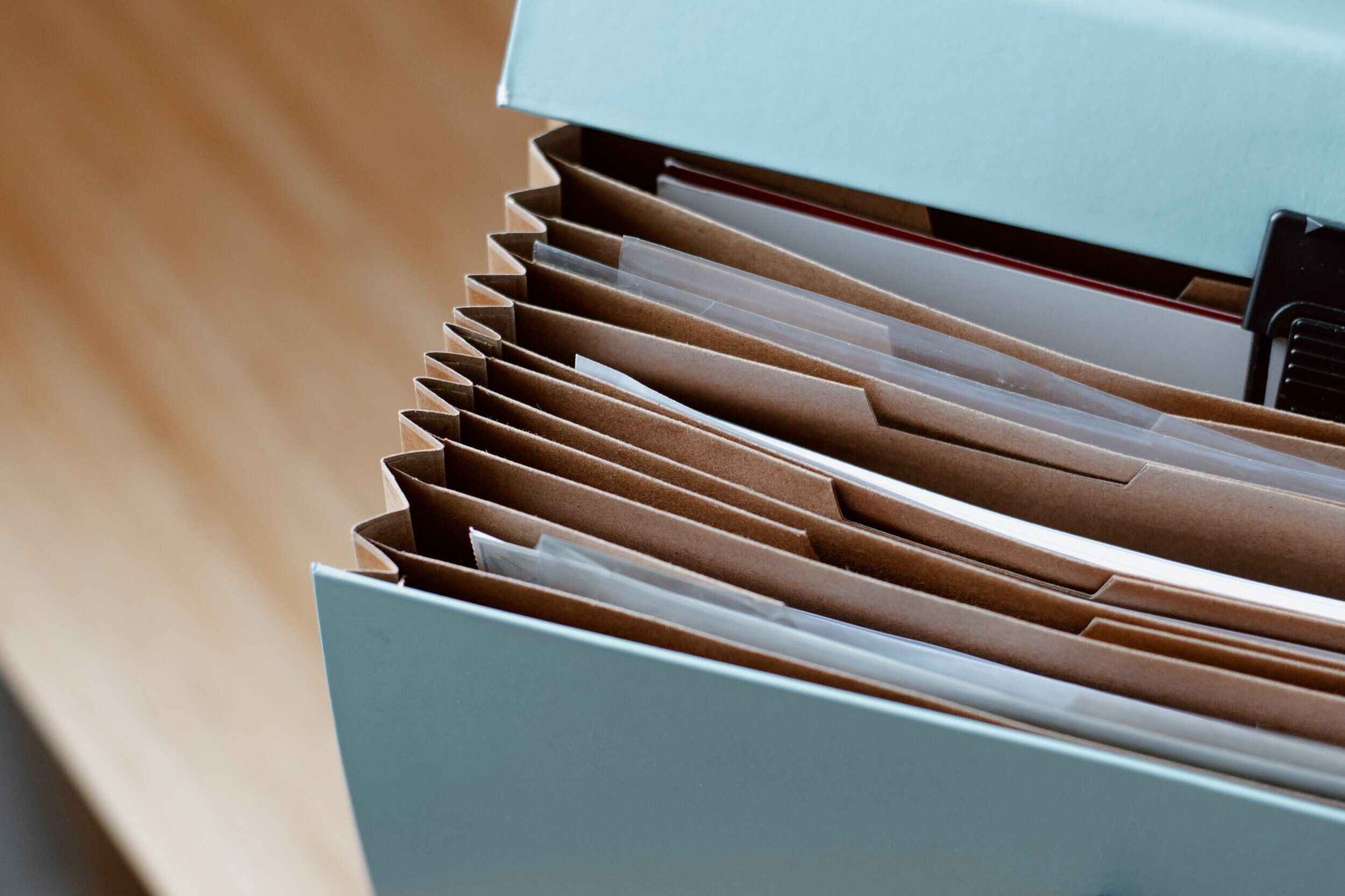Retention Guide
We've compiled a list of the most common tax and financial records a business or individual may need to keep and guidelines for how long the records should be retained. The information in this guide is of a general nature and may not be applicable to you. Please call our office for specific guidance regarding your situation.
Businesses
Business records to keep according to the IRS.
Keep One Year
Bank reconciliations
Correspondence with customers or vendors
Duplicate deposit slips
Purchase orders (except Purchasing Dept. copies)
Receiving sheets
Requisitions
Stockroom withdrawal forms
Keep Three Years
General correspondence
Employee personnel records (post-termination)
Employment applications
Expired insurance policies
Internal audit reports
Internal reports
Petty cash vouchers
Physical inventory tags
Keep Seven Years
Accident reports and claims
A/P ledgers and schedules
A/R ledgers and schedules
Cancelled checks
Expired contracts and leases
Expense analysis and distribution schedules
Inventory reports
Invoices to customers
Notes receivable ledgers and schedules
Expired option records
Payroll records and summaries
Plant cost ledgers
Purchasing Dept. copies of purchase orders
Sales records
Cancelled stock and bond certificates
Subsidiary ledgers
Time records
Voucher register and schedules
Voucher for payments to vendors, etc.
Keep Permanently
Your business is required to keep these documents indefinitely.
CPA Audit reports
Cash books, charts of accounts
Cancelled checks for important payments
Contracts and leases still in effect
Correspondence on legal and other important matters
Deeds
Mortgage and bills of sale
Depreciation schedules
Financial statements (end-of-year)
General ledgers and end-of-year trial balances
Insurance records, current accident reports, claims, policies
Journals
Minute books of directors and stockholders
Property appraisals by outside appraisers
Property records
Tax returns and worksheets, revenue agents' reports and other documents relating to determination of income tax liability
Trademark registrations
Individuals
IRS requires you to keep tax records including:
Keep Three Years
Credit card statements
Medical bills (in case of insurance disputes)
Utility records
Expired insurance policies
Keep Seven Years
Supporting documents for tax returns
Accident reports and claims
Medical bills (if tax-related)
Property records/improvement receipts
Sales receipts
Wage garnishments
Other tax-related bills
Keep Permanently
Legal records
Important correspondence
Income tax returns
Income tax payment records
Investment trade confirmations
Retirement and pension records
Year-end mutual fund and IRA contribution statements
Special Circumstances
Car records (keep until car is sold)
Credit card receipts (keep until verified on your statement)
Mortgage, deeds and leases (keep 6 years beyond the agreement)
Pay stubs (keep until reconciled with your W-2)
Property records/improvement receipts (keep 7 years after property is sold)
Sales receipts (keep for life of the warranty)
Stock and bond records (keep 6 years beyond selling)
Warranties and instructions (keep for the life of the product)
Other bills (keep until payment is verified on the next bill)
Depreciation schedules and other capital asset records (keep 3 years after the tax life of the asset, or until sold - whichever is later)
Book a FREE consultation today
(817) 332-7237 | Toll Free: (844) 332-3002
